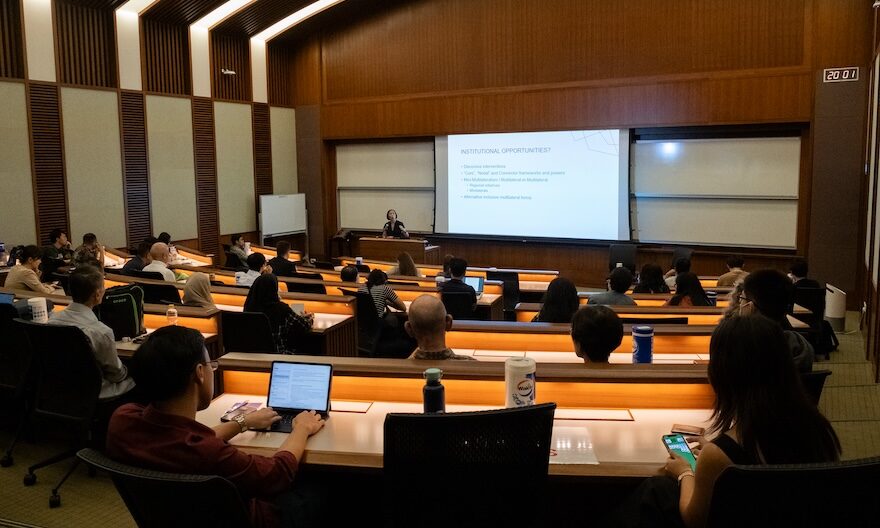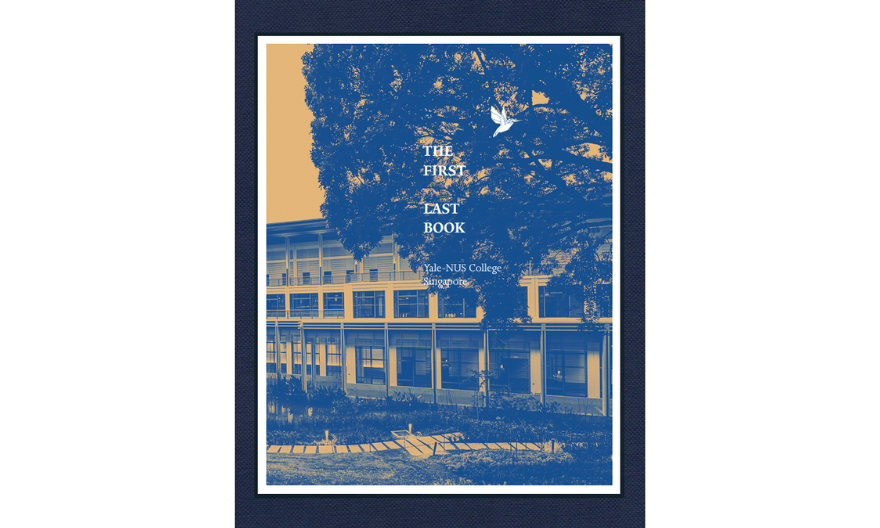Experts discussed the Quad’s impact on Asia at Yale-NUS’ Geopolitics talk series
Yale-NUS College hosted an online panel of global experts who examined the Quad’s role and its perceptions in Asia
 The speakers at the event (from left to right): Dr Tanvi Madan (Brookings Institution), Professor Rory Medcalf (The Australian National University), Assistant Professor Selina Ho (National University of Singapore) and Assistant Professor Rohan Mukherjee (Yale-NUS).
The speakers at the event (from left to right): Dr Tanvi Madan (Brookings Institution), Professor Rory Medcalf (The Australian National University), Assistant Professor Selina Ho (National University of Singapore) and Assistant Professor Rohan Mukherjee (Yale-NUS).
On 24 March 2022, Yale-NUS College hosted a Geopolitics Series webinar titled “What can the Quad do for Asia?”. Supported by the Tan Chin Tuan Chinese Culture and Civilisation Programme, the Geopolitics Series aims to explore relevant and nuanced issues and examine how these impact global geopolitic relations.
The webinar was attended by a panel of global experts who analysed the Quad’s role and perceptions in Asia. Officially known as the Quadrilateral Security Dialogue, the Quad is an informal partnership between the United States, Australia, India, and Japan that addresses security, economic, and public goods issues within the Indo-Pacific. The talk opened with a discussion on the vision of the Quad.
“The Quad can be a regional solutions provider,” said Dr Tanvi Madan, Director of The India Project at the Brookings Institution in Washington, DC and a Senior Fellow in the Project on International Order and Strategy in the Foreign Policy programme.
According to Dr Madan, the vision of the Quad as a solutions provider in the region is being challenged by issues like climate change, COVID-19 and a more assertive China. Dr Madan stressed that the Quad was a “flexible grouping” that has evolved over time, and it is now crucial for the Quad to detect, deter and defend against current challenges, and to build resilience in the region. The agenda for the Quad should be to engage with partner countries in Asia, and “effect people’s lives in a positive fashion,” she elaborated.
“Part of the purpose of the Quad is to contribute to regional security and public good,” said Professor Rory Medcalf, Head of National Security College at The Australian National University.
Prof Medcalf pointed out that the Quad’s agenda on public goods provision has accelerated since the Biden administration came into office, however, “the clock is ticking on delivery.” For him, the Quad needs to demonstrate an ability to deliver and coordinate on agenda items as a core group, whilst also working with other willing partners. “The Quad is also a strategic balancing arrangement” and that is good for Asia, Prof Medcalf noted. “It gives confidence to the region, when they see the Quad taking a stand on positions of principle,” he highlighted.
Adding on to Prof Medcalf’s points, Assistant Professor of International Affairs at Lee Kuan Yew School of Public Policy, National University of Singapore Selina Ho said, “The Chinese did not initially believe that the Quad would pose much of a challenge.”
Asst Prof Ho stressed that China’s initial dismissal of the Quad has changed since late 2020. She noted that the Chinese are now “taking this [the Quad] much more seriously.” In her view, China sees the Quad as ideologically driven and would prefer that it does not exist. China has tried to counteract the Quad by improving relations with smaller neighbours and joining regional institutions in which it has more influence. “This emphasises that China is regionally integrated and inclusive, unlike the United States (US),” she posited.
 The expert panel answered questions from the audience in a session moderated by Yale-NUS Assistant Professor of Social Sciences (Political Science) Rohan Mukherjee.
The expert panel answered questions from the audience in a session moderated by Yale-NUS Assistant Professor of Social Sciences (Political Science) Rohan Mukherjee.
Aside from addressing main themes, the panel also fielded questions from the audience. The session was moderated by Yale-NUS Assistant Professor of Social Sciences (Political Science) Rohan Mukherjee who shared, “The panel discussion was rich in detail and depth, with lively audience engagement. It was an excellent dialogue between all participants.”
In response to Asst Prof Mukherjee’s question on the Quad’s ability to achieve agenda items without stronger organisational capabilities, Prof Medcalf said that the Quad can be a formidable combination, “especially as another choice [for the region].” Asst Prof Ho added that “the Quad has a multiplier effect” – especially since “the US cannot go at it alone…on economic issues in the region.”
On the issue of the waxing and waning interest in the Quad due to changes in domestic politics, particularly in the White House, Dr Tanvi said that one of the headwinds that the Quad faces is political and bureaucratic bind. “The sustainment of the Quad requires high-level leadership enthusiasm, particularly in the US and India,” she commented. Asst Prof Ho noted the possibility of “the unintended consequences of fractured politics in the US” which might lead to an inward-looking US body-politic. On the contrary, Prof Medcalf was more optimistic, citing the domestic political unity of the US vis-à-vis China. Speaking from an Australian perspective, Prof Medcalf added that “the Quad will outlive any particular leader or champion.”
The audience gained valuable insights from the global experts. Bryan Tan (Class of 2025) said he found the topics brought up at the talk useful, “especially the points surrounding the Association of Southeast Asian Nations (ASEAN)’s ambiguous stance vis-à-vis the Quad and the precarious nature of its relationship between China and these four other regional heavyweights.”
Watch the full webinar here:




